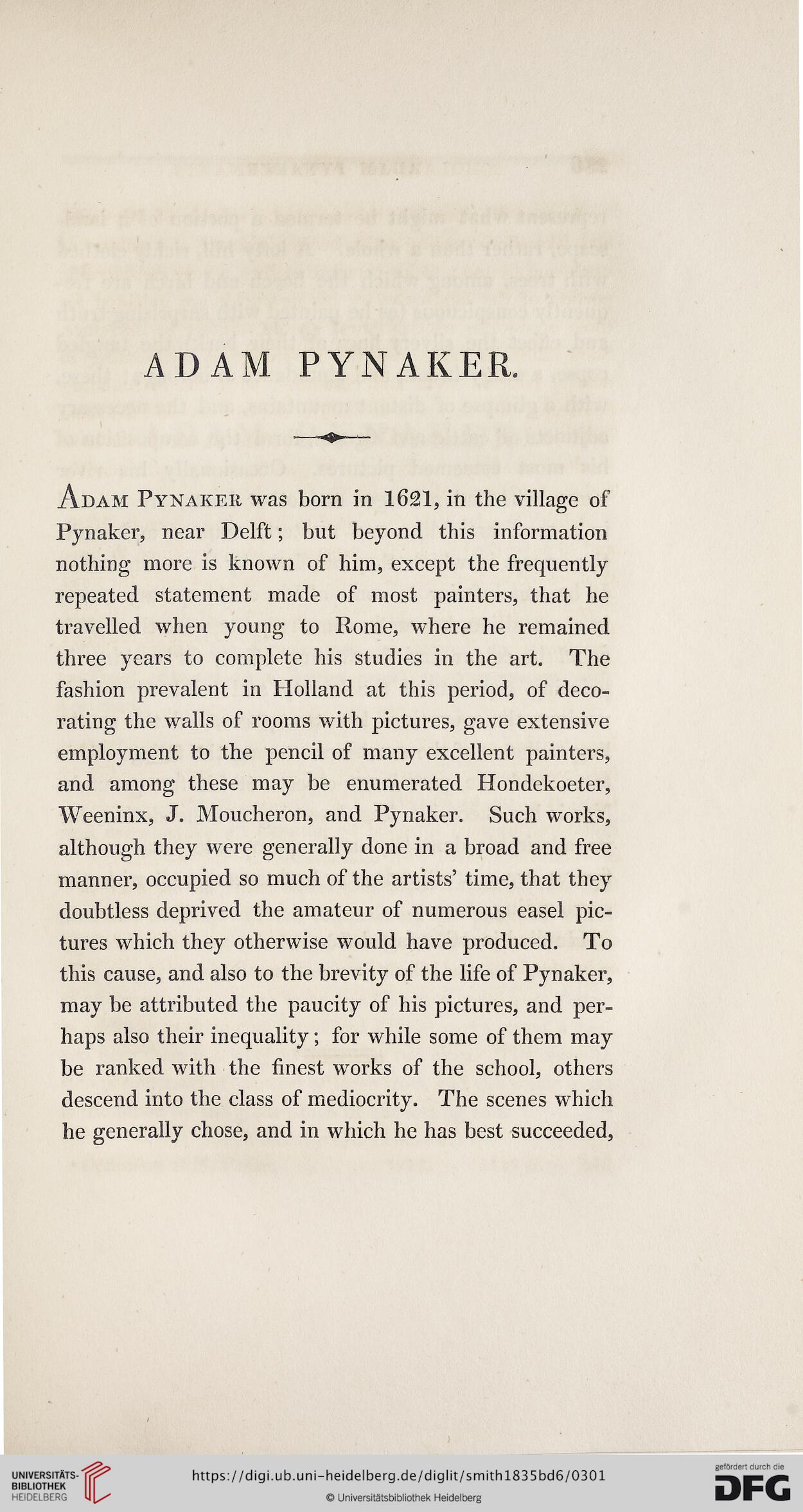ADAM PYNAKER
--——»
Adam Pynaker was born in 1621, in the village of
Pynaker, near Delft; but beyond this information
nothing more is known of him, except the frequently
repeated statement made of most painters, that he
travelled when young to Rome, where he remained
three years to complete his studies in the art. The
fashion prevalent in Holland at this period, of deco-
rating the walls of rooms with pictures, gave extensive
employment to the pencil of many excellent painters,
and among these may be enumerated Hondekoeter,
Weeninx, J. Moucheron, and Pynaker. Such works,
although they were generally done in a broad and free
manner, occupied so much of the artists’ time, that they
doubtless deprived the amateur of numerous easel pic-
tures which they otherwise would have produced. To
this cause, and also to the brevity of the life of Pynaker,
may be attributed the paucity of his pictures, and per-
haps also their inequality; for while some of them may
be ranked with the finest works of the school, others
descend into the class of mediocrity. The scenes which
he generally chose, and in which he has best succeeded,
--——»
Adam Pynaker was born in 1621, in the village of
Pynaker, near Delft; but beyond this information
nothing more is known of him, except the frequently
repeated statement made of most painters, that he
travelled when young to Rome, where he remained
three years to complete his studies in the art. The
fashion prevalent in Holland at this period, of deco-
rating the walls of rooms with pictures, gave extensive
employment to the pencil of many excellent painters,
and among these may be enumerated Hondekoeter,
Weeninx, J. Moucheron, and Pynaker. Such works,
although they were generally done in a broad and free
manner, occupied so much of the artists’ time, that they
doubtless deprived the amateur of numerous easel pic-
tures which they otherwise would have produced. To
this cause, and also to the brevity of the life of Pynaker,
may be attributed the paucity of his pictures, and per-
haps also their inequality; for while some of them may
be ranked with the finest works of the school, others
descend into the class of mediocrity. The scenes which
he generally chose, and in which he has best succeeded,




